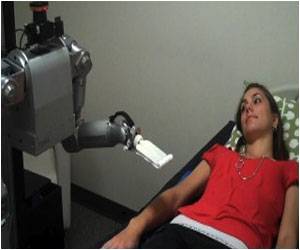
In a review article, Maya Opendak and Elizabeth Gould of Princeton University synthesize the vast literature on this topic, reviewing environmental factors that influence the birth of new neurons in the adult hippocampus, a region of the brain that plays an important role in memory and learning.
The authors discussed how the birth of such neurons might help animals and humans adapt to their current environment and circumstances in a complex and changing world. They advocated for testing these ideas using naturalistic designs, such as allowing laboratory rodents to live in more natural social burrow settings and observing how circumstances such as social status influence the rate at which new neurons are born.
Opendak said that in particular, seeking out rewarding experiences or avoiding stressful experiences might help each individual optimize his or her own brain; however, more naturalistic experimental conditions might be a necessary step toward understanding the adaptive significance of neurons born in the adult brain.
The birth of new neurons in adulthood might have important behavioral and cognitive consequences. Stress-induced suppression of adult neurogenesis has been associated with impaired performance on hippocampus-dependent cognitive tasks, such as spatial navigation learning and object memory.
Stressful experiences have also been shown to increase anxiety-like behaviors that are associated with the hippocampus. In contrast, rewarding experiences are associated with reduced anxiety-like behavior and improved performance on cognitive tasks involving the hippocampus.
Advertisement
Gould and her collaborators recently proposed that stress-induced decreases in new neuron formation might improve the chances of survival by increasing anxiety and inhibiting exploration, thereby prioritizing safety and avoidant behavior at the expense of performing optimally on cognitive tasks.
Advertisement
However, when aversive experiences far outnumber rewarding ones in both quantity and intensity, the system may reach a breaking point and produce a maladaptive outcome.
For example, repeated stress produces continued reduction in the birth of new neurons, and ultimately the emergence of heightened anxiety and depressive-like symptoms.
The study is published in Cell Press.
Source-ANI









